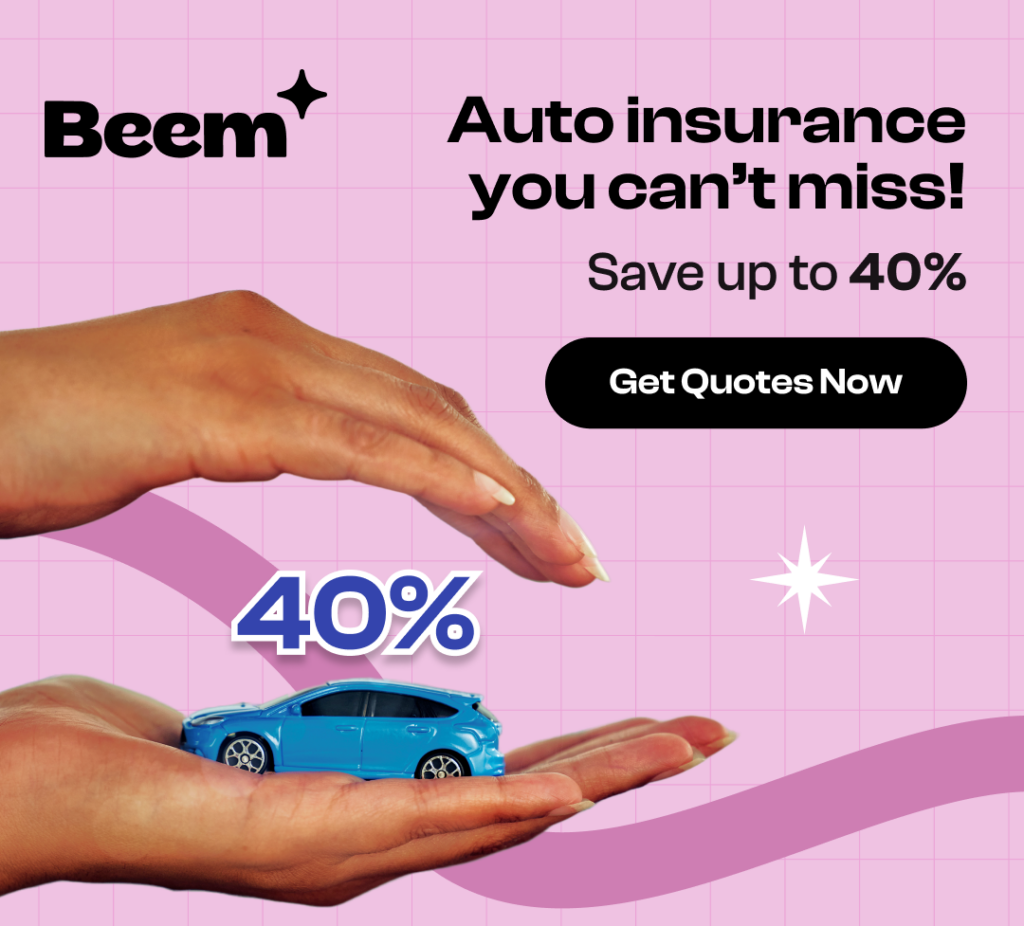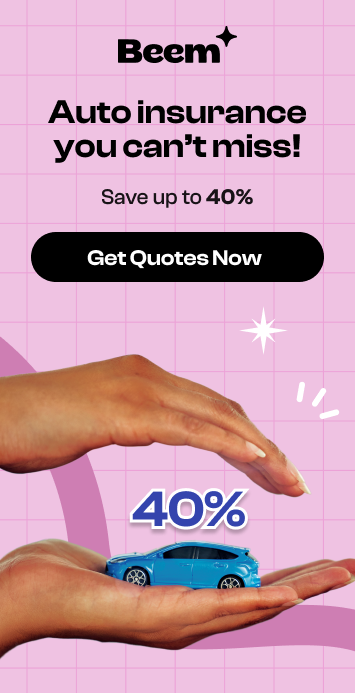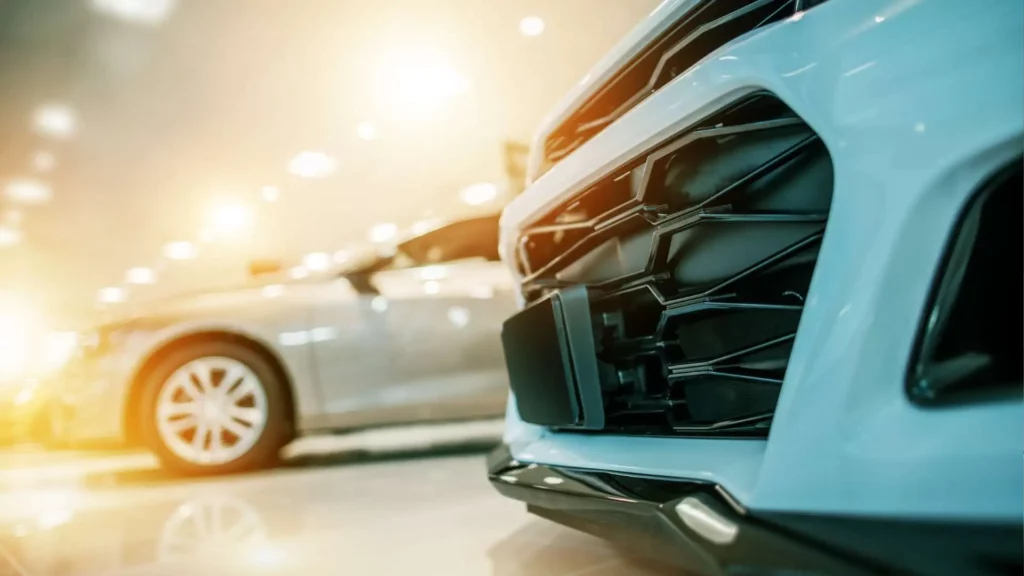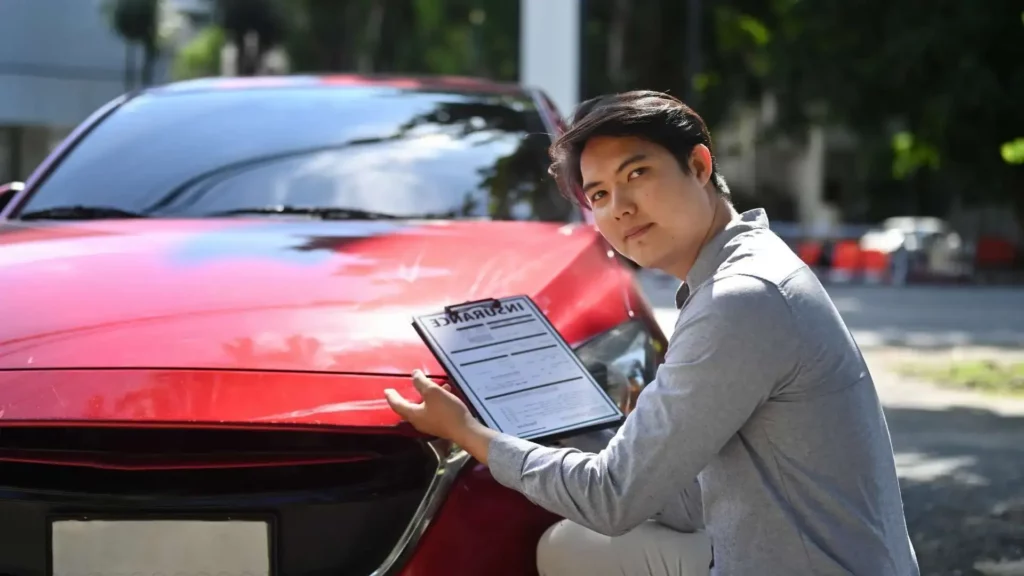If you are a car owner, then you need car insurance to show some “financial responsibility”. Driving your own car may give you a great feeling of freedom but as it happens, with great freedom comes responsibility. You need car insurance to keep yourself equipped to bear the financial responsibility for any damages to life or property in case of an accident.
Car insurance is meant to protect you and your family financially. You need it if you are involved in an accident with related injuries or vehicle damage. Not having the same can incur lasting damages. But how much car insurance would you need exactly? Beem, America’s first Al-powered Smart Wallet App, is here to help you understand how much car insurance you need in the country.
Minimum Coverage Car Insurance
No doubt, you must at the very least, purchase your state’s minimum vehicle insurance requirements. Every state requires drivers to carry the minimum amount of liability coverage to drive legally. It makes it generally the easiest and most affordable to purchase.
All You Need to Know About Minimum Car Coverage
Car insurance laws vary from state to state. If you don’t have car insurance, your state might require you to sign a bond of $50,000 or more to confirm your financial responsibility. In Virginia and New Hampshire, for instance, if you do not have insurance, you must either pay a charge to the state each year or demonstrate that you are financially capable of paying for damages out of pocket in the event that you cause an accident.
To ensure that you are in compliance with the law, you must first check your state’s minimum requirements for insurance. Driving without insurance is a serious offense that can result in a number of penalties. If you are caught, you may face fines, license suspension and the suspension of your vehicle’s registration.
Furthermore, if you cause an accident without insurance, you will be personally liable to pay the damages. It might be financially disastrous for you in the future. If you are unable to pay, you may be sued, have your assets taken or even your earnings restricted.
Most states have requirements for liability protection, personal injury protection, medical payments and uninsured or underinsured motorist coverage. Let’s understand what they are:
Liability Insurance
If you are at fault for an accident, your liability insurance will cover the injuries and property damage sustained by others. If you are sued as a result of an accident, it also covers your legal defense as well as any settlements or judgments.
So, how much liability car insurance do you need? The standard rule of thumb is to buy enough liability insurance to cover the money you could lose in a lawsuit against you if you cause a car accident.
Uninsured Motorist Insurance
Uninsured motorist (UM) and underinsured motorist (UIM) insurance pay for your medical bills if you are hit by someone who doesn’t have car insurance or doesn’t have enough insurance to cover your damages. In some cases, you may be required to pay a deductible for claims even if you are not at fault for the accident.
Some states require uninsured motorist coverage, while others make it voluntary. In states where it is voluntary, you often have the option to reject the coverage in writing. Even so, UM is a good coverage to have as it pays for medical expenses for you and your passengers, lost wages if you cannot work because of the car accident, car damage (depending on your state), pain and suffering and even funeral expenses.
How much uninsured motorist coverage should you buy? UM, coverage must normally be purchased in amounts equal to your liability insurance.
Personal Injury Protection
Personal injury protection (PIP) pays for medical expenditures for you and your passengers regardless of who’s at fault in a vehicle collision. It also covers other costs such as missed wages, funeral expenses and replacement services such as cleaning or child care that you are unable to provide due to your injury.
If you reside in a ‘no-fault’ insurance state, you will also be mandated to carry personal injury protection coverage (PIP). Alternatively, if PIP is optional in your state, you can choose to decline it if you already have a good health insurance plan. That being said, PIP has some perks your health insurance won’t provide, such as reimbursement for services and lost wages.
How much PIP insurance should you buy? Well, PIP rules vary by state where it is offered, so you can calculate how much you need accordingly.
Medical Payments Coverage
Medical payments coverage is often referred to as “MedPay” and it is similar to PIP. But it is generally an option in states that are not considered no-fault.
It covers the cost of treating injuries to you and your passengers regardless of who was at fault. However, it may not cover lost wages. MedPay is required in some states like Pennsylvania, Maine and New Hampshire.
These are the minimum state requirements for car insurance. But state minimums are woefully inadequate when it comes to your own car’s repair bills. With that in view, it is worth considering collision and comprehensive insurance besides other insurance coverage types.
Collision And Comprehensive Insurance
Collision insurance covers financial damage if your car crashes with an object or another vehicle. Comprehensive insurance, on the other hand, pays for damage caused by other unforeseen circumstances such as theft, vandalism, fire, hitting an animal and weather or natural conditions.
If you have a car loan or lease, your lender or leasing company will most likely require these two coverage types while you are still making payments.
How much collision and comprehensive car insurance do you need? Both types of coverage will help in paying for cost incurred in repairing or replacing your car if the damage is covered under the policy. Note that collision and comprehensive coverage also require separate deductibles. Therefore, select a higher deductible amount if you want to cut down on premium costs.
Other Car Insurance Options You May Need
You might also benefit from an additional range of coverages. These are not usually required by certain states, but could be quite helpful in creating a policy that is better suited to your specific needs.
Some of the prominent optional coverage types are:
- Gap insurance: It is designed to cover the “gap” between your car’s actual cash value and how much you still owe on your financing. For example, if you have $15,000 outstanding on your loan but your car’s value was $13,000, gap insurance pays the $2,000 gap.
- Roadside assistance insurance: If your car breaks down or you run into another problem (like locking your keys in your car or flat tire), this pays for roadside assistance service.
- Accident forgiveness: This gives you a waiver after your first at-fault accident so that you won’t have to face a surcharge on the premium. This option is not available from every company, but if it is, it can help in keeping your insurance costs in check in case you cause an accident.
- Rental reimbursement insurance: If your car is under repair due to a problem covered by your policy, this coverage pays for the substitute transportation. It includes rental car, train or bus fare during repairs.
Conclusion
You must consider various factors while deciding how much coverage to have in your car insurance policy. Keep a balanced approach between your budget, financial situation, state rules and risk tolerance level. Opting for state minimum coverage levels may mean a lower premium. But such coverage limits may not be enough in case of an accident.
That is why, most insurance experts advocate purchasing higher liability limits or full coverage automobile insurance. It may result in a little extra premium. But it will provide better protection from financial losses in the face of any unforeseen accident in the future.


























